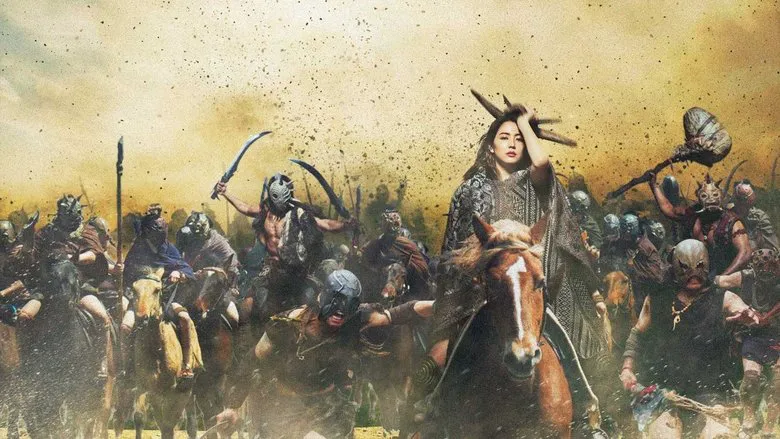
The Kingdom by Emmanuel Carrère, translated by Alyson Waters, was published by Other Press in February 2017, 464 pages.
In 2015, Michel Houellebecq, the notoriously iconoclastic French novelist, released his latest work, Submission. Set against the backdrop of the 2022 French presidential election, the novel imagines a political landscape where various parties, setting aside their differences to counter the surging right-wing National Front, inadvertently pave the way for the leader of the Muslim Brotherhood to win the presidency. It portrays the journey of François, a Sorbonne University professor of literature, who initially remains detached from the political upheaval of France’s “Islamization,” then attempts to escape it, and ultimately “submits” (the original French title, “Soumission,” also carries the meaning of “conversion”).
Unsurprisingly, the novel garnered widespread attention upon its release. Charlie Hebdo featured Houellebecq’s caricature on its cover on the day of publication, with the headline “The Predictions of Wizard Houellebecq.” Tragically, on that very day, two terrorists stormed the offices of Charlie Hebdo, committing a horrific act that shocked the world.
Such a sequence of events might be deemed too dramatic if conceived by a novelist, yet it undeniably transpired. Similarly, viewing Submission as a political prophecy reveals Houellebecq’s limitations as a soothsayer. His prediction did not materialize—the 2022 French election did see Marine Le Pen, leader of the National Front, defeated once again, but her victor was Emmanuel Macron. Nevertheless, Houellebecq adeptly captured the prevailing fears and cognitive blind spots of the time—a fundamental skill of any true seer. “In short, Cassandra represents a pessimistic prophecy that is repeatedly fulfilled… Perhaps it is impossible for those who have always lived and thrived within a particular social system to imagine the perspective of those who never expected anything from that system and feel no pain even when it is shattered.” People cannot ignore Cassandra, yet they cannot heed her warnings, for to do so would mean relinquishing a life of unthinking obedience—they must always “submit.” This is Apollo’s curse upon Cassandra, and simultaneously, his “blessing” upon humanity.

Submission by Michel Houellebecq
The Kingdom: A Counterpoint to Submission
If we set aside the label of “political prophecy,” Emmanuel Carrère’s The Kingdom, published in 2014, can be seen as a companion piece to Submission. While Houellebecq writes about an atheist intellectual’s conversion to Islam, Carrère chronicles the struggles of another atheist intellectual—himself—with Christian faith. Both, like most people in today’s world, stand on the precipice of nihilism and fear, faintly hearing the call of Kierkegaard’s “leap of faith.” However, they ultimately construct different worlds. While Houellebecq’s protagonist accepts the persuasion of those he once scorned, believing that “Europe has completed its suicide” and that individuals should choose the best refuge, because “the highest form of human happiness is absolute submission,” Carrère returns to the source, seeking to understand how Christianity was established—how a tradition riddled with inconsistencies could sustain the faith of countless Europeans. He begins with his own confusion, tracing the paths of saints like Paul, John, and Luke, but ultimately writes about himself—finding the kingdom means finding oneself and stepping outside oneself, and “healing is merely an added bonus” (Lacan). Whether miracles exist in the human world has always been a matter of human concern.
Schrödinger’s Cat and Dick’s Cat
The world is familiar with Schrödinger’s cat—confined by a scientist in the name of truth within a sealed box containing a radioactive element and a vial of poison. If the element decays, the vial breaks, and the cat dies; if it does not, the cat lives. According to quantum mechanics, the radioactive element exists in a superposition of both decayed and undecayed states, and thus the cat is also in a state of “superposition of life and death”—until the box is opened. This thought experiment aims to demonstrate how the “Pandora’s box” opened by quantum mechanics undermines the edifice of classical physics: there is no truth before observation. Thus, people begin to question “Does God play dice?” casting aside Nietzsche’s pronouncement of God’s death.
In contrast, few know of “Philip K. Dick’s cat.” One day, the science fiction writer took his family to church to partake in Holy Communion. His daughters did not understand the principle of receiving the Eucharist, and were shocked by the notion of “eating flesh and drinking blood.” To comfort her children, Dick’s wife resorted to the modern church’s cliché, telling them that the wine and unleavened bread were merely symbols of “Christ’s flesh and blood,” and that they were not really eating a person. However, Dick was dissatisfied with this explanation, believing that the Eucharist is the Eucharist, and cannot be anything else—“Communion is the medium of human mutation.” To rescue his daughters from his wife’s banality, he told them a story about a cat:
Once upon a time, there was a hostess who invited friends to her home for dinner. She placed a five-pound steak on the cold buffet in the kitchen. As the guests arrived, they chatted with the hostess in the living room. After a few martinis, she excused herself to prepare the steak in the kitchen… only to find that the meat was gone. Guess who she saw squatting in the corner, smacking its lips contentedly? It was the family’s cat.
…The guests rushed over upon hearing the commotion, and began to discuss the matter. Five pounds of steak had vanished into thin air, and the cat looked satisfied. Someone suggested that the only way to know what had happened was to weigh the cat. They had drunk a little too much, and everyone thought it was a good idea. They carried the cat to the bathroom, placed it on the scale, and weighed it—exactly five pounds. That was it. The truth was revealed. Now everyone knew who had stolen the meat. At that moment, one of the guests scratched his head and asked, “Okay, everyone knows where the five pounds of steak went. But where did the cat go?” (p. 81)
Dick has always been notorious, but this story might earn him some favor among cat lovers—after all, his cat’s life is not in danger, and it even enjoys a hearty meal. But upon closer inspection, the cat’s fate is perhaps even more uncertain. Schrödinger’s cat is at least in a state of suspended animation, while Dick’s cat has vanished entirely!
However, there is still good news—the person who receives Holy Communion disappears along with the cat who steals the steak. This is perhaps what Dick wanted to illustrate: even if people reduce Holy Communion to a mere ritual, they are indeed swallowing “God”—otherwise, where did God go? And if God never existed in the first place, what is the meaning of this ritual? The contradiction can be resolved simply by acknowledging that it is the person who disappears.
Carrère is very fond of this bizarre story. He wrote it once when he was writing a biography for Dick, and he quoted it again in The Kingdom. In fact, he generously admits that “today I cannot be sure how much of the chapters telling of those years similar to my experience is really about him, and how much is a projection of my own experience” (p. 80). This story may not have originated with Dick, but it is certainly the kind of story he would have liked to tell. In his most famous science fiction novel, Do Androids Dream of Electric Sheep?, when Rick Deckard, a bounty hunter who hunts androids for a living, gradually realizes that he may be doing something wrong, he turns to Mercer—his god—for help, but the latter bluntly states that he cannot help. “There is no salvation in the world,” Mercer exists only because “no matter where you go, you have to do something wrong,” “it is the basic condition of life, requiring you to violate your own identity”—such as being human—but “you are not alone,” “I am here with you, always here.”

Do Androids Dream of Electric Sheep? by Philip K. Dick
In the novel, the way humans worship Mercer is through “fusion.” Thus, whether it is Schrödinger’s cat or Dick’s cat, they are both proving that the more humans think, the more they prove that God is both nowhere and everywhere—which is reason enough for God to laugh.
The Believer’s Heart and the Killer’s Secret
Like Rick Deckard, Carrère also experienced a spiritual crisis, which led to the creation of The Kingdom. Of course, he did not hunt androids to own a pet sheep. He is a successful writer, and could afford to raise a few sheep—but like most modern people who are well-fed and clothed, he suddenly felt that he was not doing well: he was secure in life but afraid to face it, he loved his partner but seemed to have lost the passion of love, he wanted to make changes but did not want to hurt others. Most importantly, he did not know how to “give my life a new meaning, a better meaning” (p. 25). Carrère believed that in order to overcome this crisis, he needed to resort to the mystical, so he chose to convert to Christianity.
If this were a missionary pamphlet, it could end here. But Carrère’s path to redemption is destined to be not so simple: he cannot overcome his existential crisis by attending weekly services, receiving Holy Communion, and heeding the “solemn call to a pious and holy life.” Moreover, like Dick, he also believes that public religious life today is merely a degraded ritual, which Kierkegaard would probably denounce even more bitterly, exclaiming that “they have turned the wine of Jesus back into water.” In The Kingdom, Carrère traces the Roman distinction between religio, which expresses reverence through ritual, and superstitio, which divides people into different groups. This distinction seems to be still in use today:
As I said before, the Romans believed that religio, which expresses reverence through ritual, was opposed to superstitio, which is the ritual that connects people as opposed to the religion that divides people into different groups. The rituals of the time were reduced to formalities and regulations, with little meaning or emotion, which was precisely the advantage of the rituals. Think about yourselves—Westerners in the twenty-first century. De-religionized democracy is our religio. We have never asked it to give us spiritual inspiration, nor have we wanted it to fill our inner desires. At most, it provides a framework in which everyone can exercise their freedom. Experience has taught us that what we fear most are those who claim to have the secret to happiness, fairness, and self-realization, and who want to impose it on others. And superstitio is truly deadly. (pp. 387-388)
We merely demonstrate our decency by participating in religious and other traditional or “invented traditions” (Hobsbawm), and thereby maintain our connection with others. At the same time, we think that those overly enthusiastic believers—who build their lives on the guidance of religious mysteries—are strange, even dangerous. The Romans’ superstitio is similar to what we call cults today—their attitude towards this religion is not much different from ours.
Carrère’s conversion is actually a pursuit of superstitio. The most touching sentence in the Bible for him is “When you were young, you dressed yourself and went where you wanted; but when you are old, you will stretch out your hands, and someone else will dress you and lead you where you do not want to go” (p. 38). A transcendent, mystical—perhaps necessarily coercive—guidance is what true converts crave. So in order to understand the mysteries of Christ, Carrère began to read the Bible, “spending the first hour of each day with St. John. One passage each day, always careful not to write my reading notes as a running account like a diary, but to not only introspect, but also record my mental journey” (p. 48). At the same time, he began to restrain himself according to the requirements of Christ, but the results were not ideal. For example, he once wanted to accept Jamie—a down-and-out female believer who had known Dick—as a nanny for his daughters, but eventually gave up because this believer was too headstrong. “If we live according to the Gospels, will we trust others too much?” (p. 68) The disappearance of shared faith makes “seeking the kingdom of God” in modern society seem like a fantasy. But perhaps fundamentally, such a life is not what mortals desire. Carrère is equally candid about this, still wanting works, honors, “the waves my name stirs in the hearts of others,” “I would sell my soul to the devil for them, but the devil does not want my soul, so I offer it to God. Even so, I still hesitate” (p. 53). Finally, two years after his conversion, Carrère finished his last notebook, and also gave up his faith in the discouragement of “there is no longer any belief in my heart” (p. 110).
Just as the decision to dedicate one’s soul to God is hesitant, how can the rejection of God’s guidance be resolute? At the beginning of The Kingdom, Carrère writes, “The notebooks I wrote when I was religious, if I hadn’t destroyed them when I was thinking about suicide—the answer suddenly popped into my head—should be next to the pre-trial materials in the ‘Roman cabinet’” (p. 18). This “Roman” is Jean-Claude Roman, one of the most notorious criminals in French history, who killed his wife, children, and parents in 1993, and concealed his crimes for eighteen years. Later, Carrère interviewed him personally and wrote the book The Adversary. To casually talk about putting his Bible reading notes together with the killer’s materials is Carrère’s usual playful style, and this playfulness is also a foreshadowing. In the second half of The Kingdom, Carrère again talks about his interview with Roman, who has converted to Christianity in prison. Many serious criminals do this, after all, Christ always promises forgiveness, just as the Buddhist saying goes, “Lay down the butcher knife and become a Buddha on the spot.” However, Carrère would rather imagine that Roman’s conversion is not entirely due to cowardice. “We cannot rule out the possibility that deep in Jean-Claude Roman’s soul, there are some thoughts that have nothing to do with the liar who possessed him. We call this possibility Christ.” (p. 354)
The believer’s heart, the killer’s secret—hiding in one place may not be absurd, but rather appropriate. After all, who can know the affairs of the human heart?

Emmanuel Carrère
Luke’s Good Story and the Kingdom of God
Although he gave up being a Christian, Carrère’s entanglement with Christian faith did not end there. In 1995—two years after Roman killed his family and Carrère finished his last notebook—he received an invitation to participate in a project to retranslate the Bible, with each book completed by a writer paired with a Bible expert. Thus, Carrère returned to the Bible text, but this time he no longer focused on talking to the saints, trying to connect with God. He began to trace the paths of the saints, in order to understand how the early church, starting with Paul, was founded, and what roles John, Luke, and others played in it, and perhaps more importantly for Carrère and many secular readers—what exactly did building and holding faith bring them.
Since it is not “talking to God,” this part of the content may disappoint readers who want to see Carrère “interpret the scriptures,” or even feel offended. He writes about Paul’s uprising as he wrote about Limonov in Limonov—that “oppose everyone” dissident—“Perhaps as I write this, some unknown person is causing trouble in a suburban city-state, whether for good or for evil, he will change the face of the world in the future” (p. 181); and John, “the John who wrote the Gospel,” is compared by him to Proust’s silly Octave, “It was not until the end of In Search of Lost Time that people unexpectedly learned that he had become the greatest, most profound, and most innovative artist of the time” (p. 400).
As for Luke, Carrère’s reconstruction is equally original. He sees the Gospel of Luke as “a novel… a real novel” (p. 460). By comparing the similarities and differences between the Gospel of Luke and other Gospels, Carrère rediscovered Luke as a “novelist.” For example, regarding the resurrection of Jesus, most people remember the sentence in the Gospel of Luke, “Why do you look for the living among the dead?” The woman who witnessed Jesus’ body disappearing from the tomb was confused, and then received an epiphany. However, the earlier and perhaps closer to the truth version is the version in the Gospel of Mark, which ends only with “They were afraid.” “‘They were afraid’—those are the last words Mark wrote.” (p. 453) Luke’s story is smooth and appropriate, while Mark seems to be a “bad author” who lacks reader awareness. Carrère cannot help but imagine the novelist Luke’s self-satisfaction, “When he read what Mark wrote, he must have thought: I can do better, after all, I have information that Mark does not know; I am more cultured, and I also know how to choose words… The final version of the story, which is the one that educated pagans will read, will be written by me” (p. 457).
Carrère regards all the saints as mortals, which is not an original view. Contemporary early Christian scholars such as Bart Ehrman also hold the same view. “The more I trace the roots, the more I feel that the authors of the New Testament are the same as those later scribes. These authors are also human, with their own needs, beliefs… and all of this will affect what they write down.” Ehrman further points out, “My point is that Luke modified the tradition he inherited… In a sense, every author modified the ‘scripture’ he inherited.” Carrère favors Luke, “I am willing to project myself onto Luke, as long as I know that I am projecting” (p. 337). Such an operation is different from vulgarizing faith and understanding it as the degradation of ritual, but rather a transcendence—seeking divinity with human flesh, which is the opposite of maintaining human ties in the name of God. In the end, the kingdom of God sought by the novelist Luke—Carrère—is just a good story he wants to tell. The story has miracles, forgiveness, and even more truth:
The story of the lost sheep is the basis of the parable of the prodigal son. When Matthew told the story of the lost sheep, he was holding a child in one hand, and he ended by saying, “In the same way your Father in heaven is not willing that any of these little ones should perish.” Luke did not add such words. The tolerant, gentle, and easy-going Luke said that one of the laws of the kingdom of God is that some people are lost. Hell does exist, it is soaked in tears, and echoes with the sound of gnashing teeth. There is certainly a happy ending, but it is not everyone’s turn. (pp. 492-493)

Misquoting Jesus by Bart D. Ehrman
Faith has never promised perfection, it only provides direction. Here, Carrère finally completed the journey of “When I first went out, I saw the mountain as a mountain, on the way, I saw the mountain as no longer a mountain, and at the end of the journey, I saw the mountain as a mountain again” (p. 492). As for his own kingdom and faith, he still doubts, but it no longer matters, because he has already stepped outside himself, and this is precisely the purpose of his writing this book—“I wrote this book because I don’t want to go down a dead end in my own world” (p. 287). Calypso’s vision is certainly wonderful, but Odysseus must return to Ithaca—staying in the imperfect human world, he seeks God but does not submit, approaches God but does not overstep. Such people are blessed.